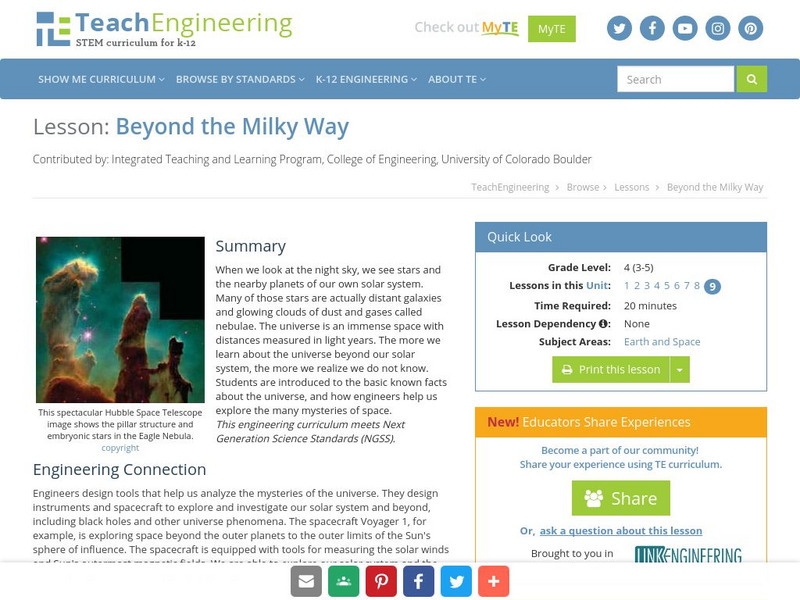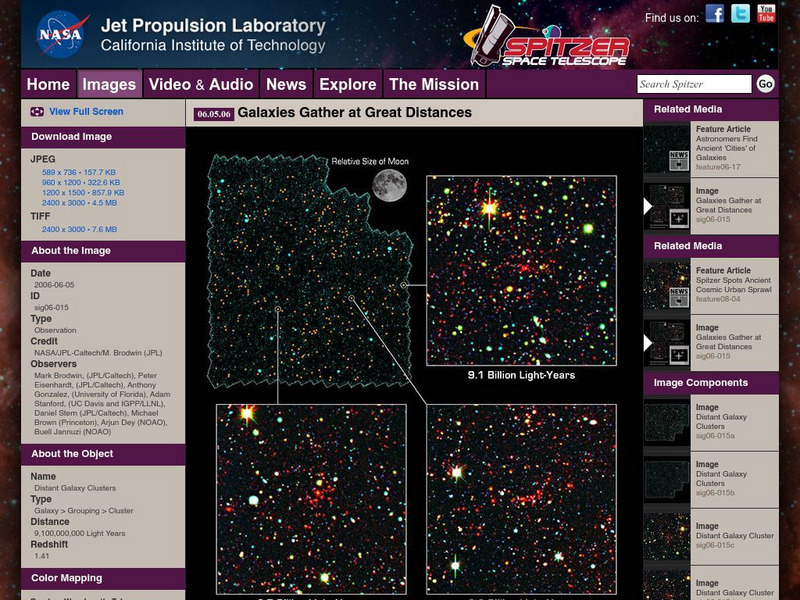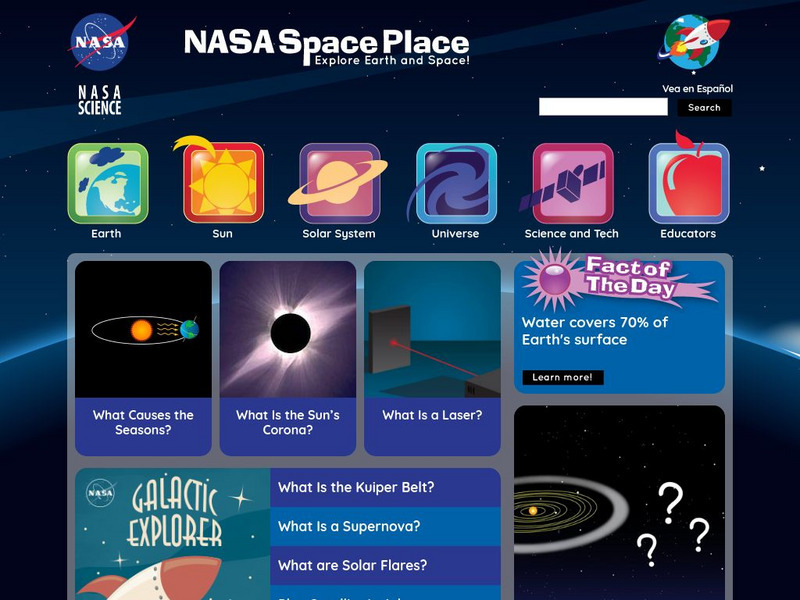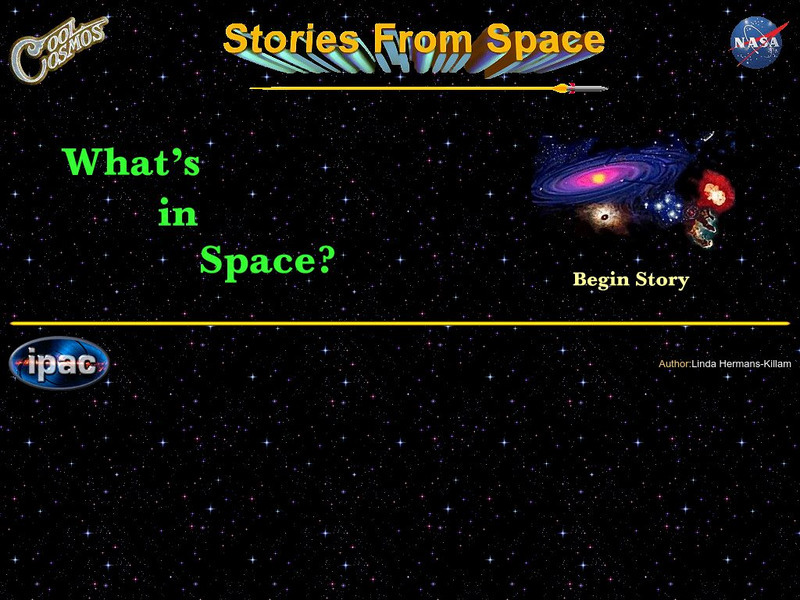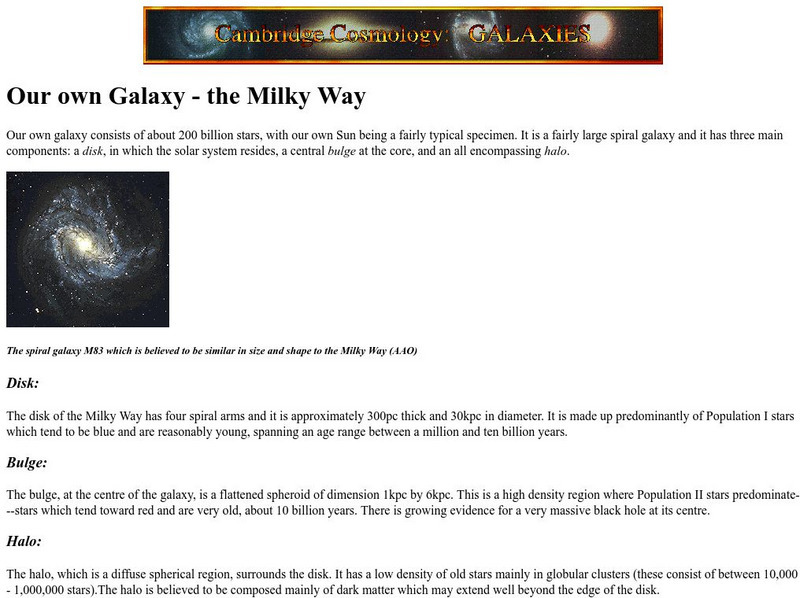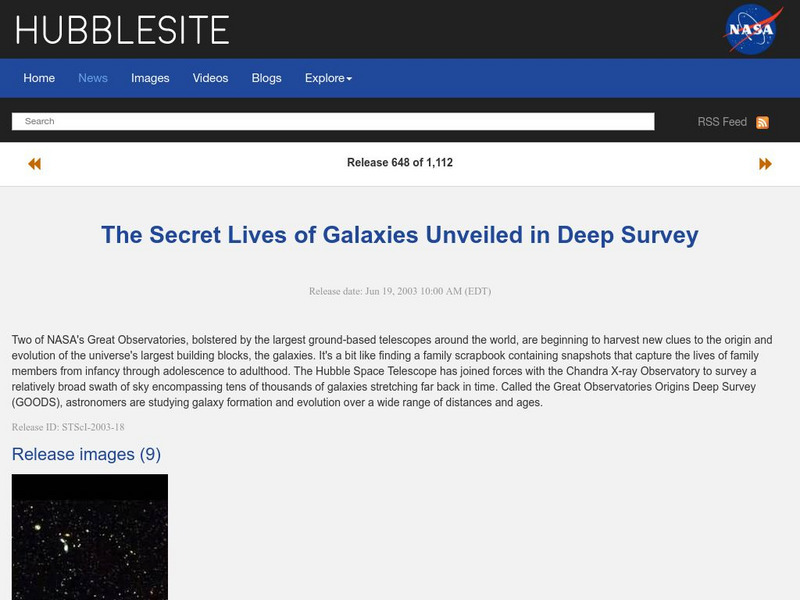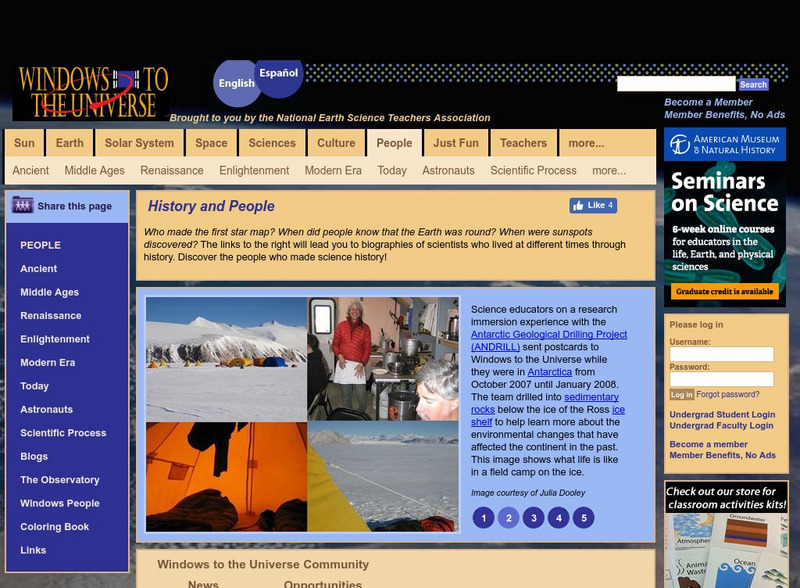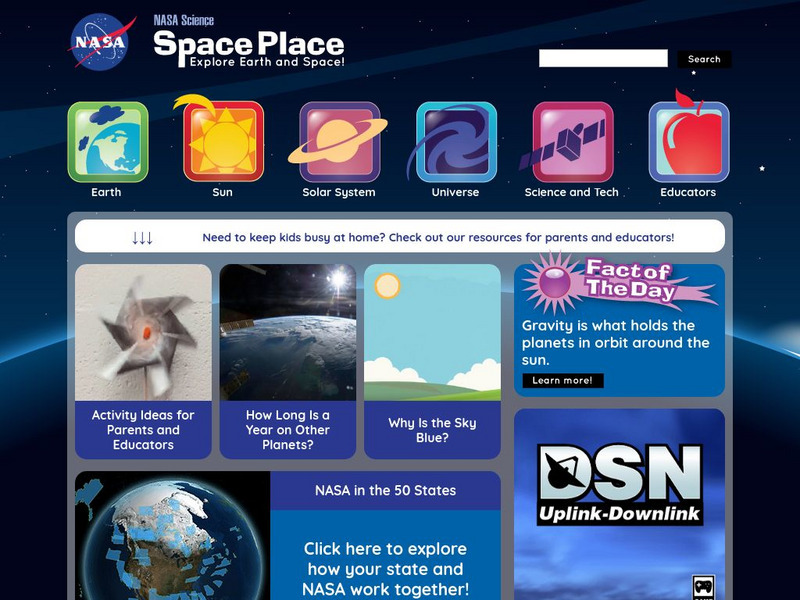Hi, what do you want to do?
NASA
Nasa Space Place: What Is a Light Year?
Brief description of light-years with examples and images.
Other
University of Leicester: Spiral Galaxies
Provides a general overview of spiral galaxies, including descriptions of the different classes of spiral galaxy.
NASA
Nasa: Image Science Center: Ask the Space Scientist
A NASA scientist, Dr. Sten Odenwald, answers many students' questions. Topics include planets, galaxies, black holes, the origin of the universe, and common misconceptions about space.
NASA
Nasa Star Child: Dark Matter (Level 1)
This site provides a description of "dark matter" and how scientist study it.
Space Telescope Science Institute
Space Telescope Science Institute: Hubble Site
Explore the universe and celestial phenomena made visible by Hubble. High-quality photos of planets, stars, nebulae, and galaxies, complete with individual descriptions, can be viewed online and downloaded for printing and personal use.
A&E Television
History.com: The Space Race: Interactive Universe
A virtual journey through space offers photos and facts about Earth and its neighboring planets, comets, other celestial bodies of the Solar System, and the Milky Way and Andromeda galaxies.
Space Telescope Science Institute
Hubblesite: News Center Release Archive
This site from Hubblesite has a very long list of Hubble Space Telescope Images listed by subject. General categories of subjects include Solar System, Stars, Nebulae, Star Clusters, Novae, Supernovae, Stellar evolutionn, Galaxies, and...
Space.com
Space: Astronomers Surprised: Stars Born Near Black Hole
Black holes seem to be a constant point of debate for astronomers. This article confirms the theory that black holes can help form massive stars and gives more support to the idea that black holes play a big role in galaxy formation....
Space.com
Space: Astronomers Surprised: Stars Born Near Black Hole
Black holes seem to be a constant point of debate for astronomers. This article confirms the theory that black holes can help form massive stars and gives more support to the idea that black holes play a big role in galaxy formation....
Space.com
Space.com: Space Views
Zoom in on everything from distant galaxies to the Earth's most interesting places! See the Pyramids, London, Hoover Dam, and more. Check for bald spots on the heads of the presidents at Mt. Rushmore. See how much the polar ice caps on...
TeachEngineering
Teach Engineering: Beyond the Milky Way
When we look at the night sky, we see stars and the nearby planets of our own solar system. Many of those stars are actually distant galaxies and glowing clouds of dust and gases called nebulae. The universe is an immense space with...
Harvard University
Chandra Special Features
Chandra allows astronomers to view our galaxy and beyond in ways only dreamt of before. 14 interactive features are offered in this exciting look at cosmic phenomena.
Mocomi & Anibrain Digital Technologies
Mocomi: What Is a Galaxy?
Explains what galaxies are and their different shapes. Includes details on the Milky Way.
California Institute of Technology
Spitzer Space Telescope: Galaxies Gather
Under the heading, "Galaxies Gather at Great Distances" this site examines (and discusses) an image featuring a group and cluster of galaxies. The text goes on to describe details specific to the image.
The Wonder of Science
The Wonder of Science: Ms Ess1 2: Gravity and Motions in Space
Work samples, phenomena, assessment templates, and videos that directly address standard MS-ESS1-2: gravity and motions in space.
NASA
Nasa Star Child: Infrared Astronomy Satellite (Iras) (Level 2)
A brief description of Infrared Astronomy Satellite (IRAS) project and its discoveries. Complete with graphics, links to a glossary of terms, and a printable version of the page.
NASA
Nasa: The Space Place
This site from NASA's Space Place is geared towards early elementary learners. It offers detailed instructions for crafts and activities related to space, games and a teacher resource area. Students can also ask an expert at this site.
California Institute of Technology
Cal Tech: Stories From Space: What's in Space?
Through this story you will be introduced to outer space: stars, the Milky Way, planets, the Solar System, the Sun, clouds of dust and gas, galaxies.
University of Cambridge
University of Cambridge: Cosmology: Galaxies
This site from the Cambridge Relativity provides a brief description of the structure of the Milky Way galaxy. The parts described are the disc, bulge, and halo.
Space Telescope Science Institute
Hubble Site: Secret Lives of Galaxies
This site is provided by HubbleSite from NASA. "Telescopes around the world are beginning to harvest new clues to the origin and evolution of the universe's largest building blocks, the galaxies." Site offers links to images, video,...
Harvard University
Quasars and Active Galaxies
This site provides information about quasars and active galaxies. Includes a glossary of important terms.
Other
Northrop Grumman Corporation: Into the Unknown: Resources
The Northrop Grumman Corporation provides numerous resource about outer space and beyond.
National Earth Science Teachers Association
Windows to the Universe: History & People
Biographies of people throughout history who looked at the sky and wondered what was there. Links to a detailed description of the planets and interactive activities.
NASA
Nasa: Star Child: Elementary Astronomy Unit
Learn everything you can about outer space with this interactive astronomy unit. 2 levels of difficulty with modules on the solar system, the universe, other "space stuff" and a glossary of terms. Links for parents and other great website.














